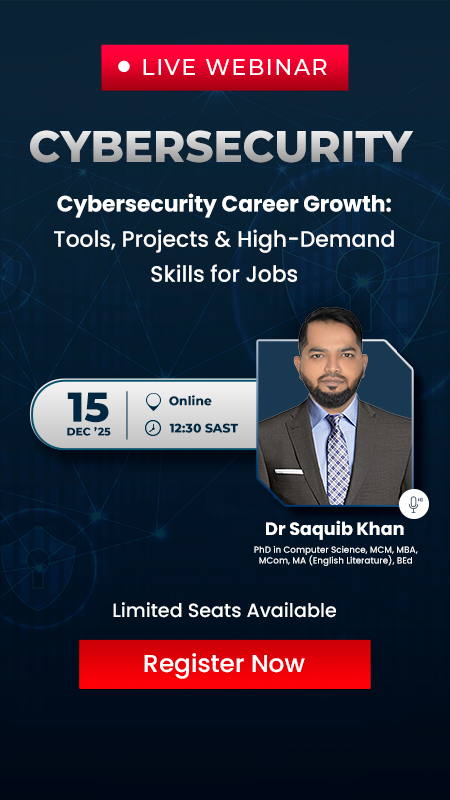What Can You Do With A Digital Marketing Certificate?
Digital marketing has revolutionised the way businesses reach and engage with their customers. This dynamic field encompasses a wide range of activities, including search engine optimisation (SEO), content marketing, social media marketing, email marketing, and online advertising. By leveraging digital channels, businesses can target their audiences more precisely, measure real-time campaign performance, and adjust strategies for optimal results. As technology continues to evolve, the digital marketing landscape expands, offering endless opportunities for creativity and innovation.
The demand for digital marketing professionals has surged as companies increasingly recognise the importance of an online presence. Businesses of all sizes, from start-ups to global enterprises, are seeking skilled digital marketers to help them tackle the complexities of the digital world.
In this article, we will learn about digital marketing certification, what can you do with a digital marketing certificate, its career opportunities, and more.
What is a Digital Marketing Certification?
A digital marketing certification is an official credential that validates your expertise and skills in the digital marketing domain. Various institutions and online platforms offer these certifications and cover essential topics such as SEO, PPC, social media marketing, and data analytics. By completing a digital marketing certification course, you demonstrate your proficiency in using digital tools and strategies to promote products and services online effectively.
Earning a digital marketing certification can enhance your career prospects. It provides you with an understanding of digital marketing principles and keeps you updated with the latest industry trends and best practices. This credential can set you apart from other candidates in the job market, showcasing your commitment to professional development and your ability to deliver measurable results in digital marketing campaigns.
Benefits of Digital Marketing Certificate
There are various benefits that anyone can earn with the help of a Digital Marketing Certificate. Some of them are as follows:
- Enhanced Credibility: A certification boosts your professional credibility, proving your expertise to employers and clients.
- Skill Development: It provides comprehensive training on the latest digital marketing tools and techniques.
- Career Advancement: Certification can lead to promotions and open your door for better opportunities.
- Continuous Learning: A digital marketing certification will help candidates demonstrate their interest in and eagerness to learn about this field.
- Higher Salary: With the digital marketing certificate, the chances of getting better pay are high.
A digital marketing certificate offers numerous advantages, positioning you as a competitive candidate in the job market. It equips you with up-to-date knowledge and practical skills, ensuring you are well-prepared to tackle digital marketing challenges. Moreover, certified professionals often command higher salaries and enjoy better job stability, as employers highly value their expertise.
What Jobs Can You Get With a Digital Marketing Certificate?
A Digital Marketing course opens various job opportunities across various sectors. Now that you know what can you do with a digital marketing certificate and its benefits, you should also know some of the job opportunities with a digital marketing certificate. Here are some of the job opportunities:
SEO Specialist
- SEO Specialists optimise websites to rank higher in search engine results, driving organic traffic. They conduct keyword research, analyse website performance, and implement on-page and off-page SEO strategies.
- Their goal is to improve visibility and increase web traffic from search engines.
- Along with these an SEO specialist, also stay updated on the latest search engine algorithms to adapt strategies accordingly.
- SEO Specialists also collaborate with content creators to ensure that the content is optimised for both search engines and user experience. They often use tools like Google Search Console and other relevant tools to monitor progress and make data-driven decisions.
Content Marketing Manager
- Content Marketing Managers create and manage content strategies to engage and attract target audiences. They oversee content creation, distribution, and promotion across various digital platforms.
- They focus on producing valuable, relevant content that drives audience engagement and conversions.
- They also work closely with SEO specialists to ensure content is search engine friendly.
- Content Marketing Managers often analyse content performance metrics to refine strategies and maximise impact. They play a crucial role in brand storytelling, helping to shape the company’s voice and messaging across different channels.
Social Media Manager
- Social Media Managers manage a company’s social media presence, crafting and curating content for platforms like Facebook, Twitter, and Instagram. They also engage with followers, respond to comments, and monitor social media trends to boost brand visibility and customer loyalty.
- Beyond posting content, social media managers develop social media strategies that align with broader marketing goals.
- They frequently analyse the performance of social media campaigns to adjust tactics in real-time.
- They also collaborate with customer service teams to address any issues followers raise on social media.
PPC Specialist
- PPC Specialists manage pay-per-click advertising campaigns on platforms like Google Ads and Bing Ads. They strategise, execute, and optimise ad campaigns to ensure maximum return on investment.
- Their role involves keyword research, ad creation, bid management, and performance analysis.
- Note that the PPC Specialists often conduct A/B testing to determine the most effective ad copy and landing pages.
- They also keep up with changes in advertising platforms to ensure campaigns remain compliant and effective.
- Regular reporting on campaign performance is a key part of their role, helping to inform future advertising strategies.
Email Marketing Specialist
- Email Marketing Specialists design and implement email campaigns to promote products, services, or events. They build email lists, create engaging email content, and analyse campaign performance metrics.
- They aim to nurture leads, boost customer engagement, and drive conversions.
- Email Marketing Specialists also segment audiences to tailor messages for specific customer groups.
- They often use automation tools like Mailchimp or HubSpot or other tools to streamline campaign management and improve efficiency.
- Analysing open rates, click-through rates, and conversion metrics helps them refine their strategies for better results.
Digital Marketing Analyst
- Digital Marketing Analysts gather and analyse data from digital marketing campaigns to measure effectiveness and identify areas for improvement.
- They use tools like Google Analytics to track website traffic, conversion rates, and other key performance indicators. Their insights help refine marketing strategies and optimise campaign performance.
- In addition to data analysis, they create detailed reports to present findings to stakeholders.
- Digital Marketing Analysts may also perform competitor analysis to benchmark performance and identify new opportunities.
- Their role is essential in guiding marketing teams to make data-driven decisions that enhance overall campaign success.
- They also use different types of tools & often communicate with different teams for better results.
These are some of the options that you can choose for your career. Along with these, there are different career options, some of which are covered in the next section.
Career in Freelancing After Digital Marketing Certification
A career in freelancing after earning a digital marketing certification offers unparalleled flexibility and the opportunity to work with diverse clients across various industries. As a certified digital marketer, you can leverage your skills to offer specialised services such as SEO, content creation, social media management, and PPC advertising to businesses that need expert assistance but may not have the resources to hire full-time employees. This path allows you to be your own boss, build a robust portfolio, expand your professional network, and achieve a work-life balance that suits your personal preferences. Some of the elements of a Digital Marketing freelancing career are as follows:
- Freelancers can choose their own working hours, allowing for a better work-life balance.
- They can work with clients from various industries, gaining a broad range of experiences and insights.
- They also have the ability to set their own charges, which can lead to higher income compared to traditional employment.
- Freelancers can choose projects that align with their interests and skills, enhancing job satisfaction.
- Lastly, freelancers constantly face new challenges and trends, encouraging ongoing learning and professional growth.
Use of Digital Marketing Certificate for Businesses
A digital marketing certificate can be a powerful asset when starting your own business. It equips you with the essential knowledge and skills to effectively promote your products or services online, reach a wider audience, and drive sales. Understanding SEO, social media marketing, email marketing, and data analytics allows you to create and implement successful marketing strategies that can give your business a competitive edge. Along with it, the credibility of having a certification can build trust with potential customers and investors, making it easier to establish and grow your business.
Overview of Digital Regenesys’s Digital Marketing with Gen AI Course
The Online Digital Marketing Course with Gen AI offered by Digital Regenesys is designed to provide proper training in digital marketing, integrating advanced AI tools to enhance your learning experience. This 24-week course covers all fundamental aspects of digital marketing, from basic principles to advanced techniques, ensuring you are well-prepared to excel in the field.
Some of the topics covered in this course are:
- Introduction to Digital Marketing
- SEO and SEM Fundamentals
- Content Marketing Strategies
- Social Media Marketing
- Email Marketing Techniques
- PPC Advertising
- Data Analytics and Reporting
- Artificial Intelligence in Digital Marketing
- Creating and Managing Digital Campaigns
- Practical Projects and Case Studies
To summarise, a Digital Marketing certification lays an excellent foundation for a wide range of job possibilities in today’s digitally driven world. It provides graduates with the necessary skills and knowledge, making them highly valuable in a variety of industries. Whether seeking a corporate position, freelance employment, or entrepreneurial ventures, the prospects are numerous and diverse, ensuring that anyone may find a rewarding and dynamic career in digital marketing. This article discussed “What can you do with a Digital Marketing certificate. To start your career or upskill yourself in the digital marketing field, you can check out Digital Regenesys.
FAQs on What Can You Do With A Digital Marketing Certificate
What jobs can you get with a digital marketing certificate?
You can pursue different job roles such as SEO Specialist, Content Marketing Manager, Social Media Manager, PPC Specialist, Email Marketing Specialist, and Digital Marketing Analyst.
What are the benefits of a digital marketing certificate?
Some of the benefits of a digital marketing certificate is that It enhances your credibility, updates your skills, provides networking opportunities, and can lead to higher salaries and better job prospects.
Is it necessary to have a degree to get a digital marketing certificate?
While having a degree can be beneficial, it is not always necessary. Many certification programs are open to individuals with varying educational backgrounds.
Can a digital marketing certificate help me start my own business?
Yes, it equips you with essential marketing skills to effectively promote your business online, reach a wider audience, and drive sales.
What key skills will I learn in a digital marketing certification course?
Some of the key skills include SEO, content creation, social media marketing, email marketing, PPC advertising, data analytics, and the use of AI tools in marketing.
How can I use a digital marketing certificate?
You can use a digital marketing certificate to help you land a better job, boost your salary, enhance your skill set, and improve your business’s online presence.













